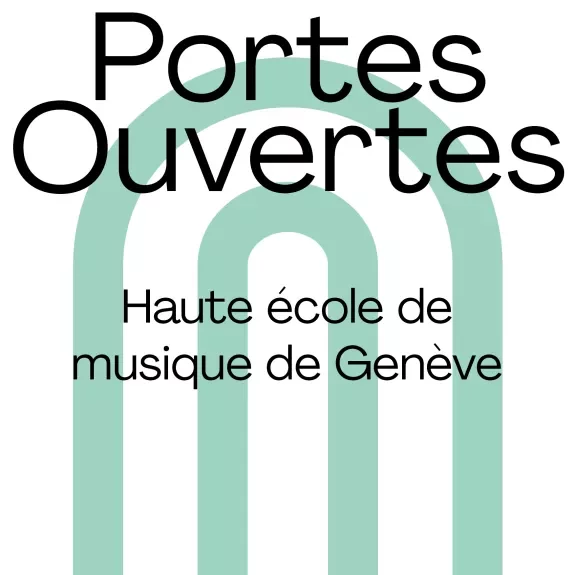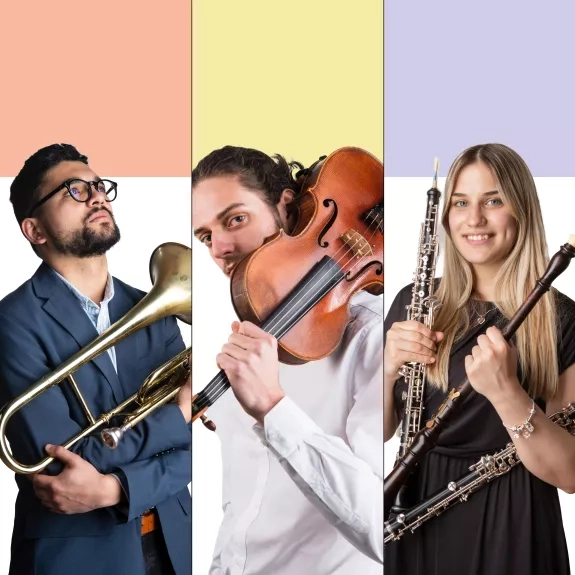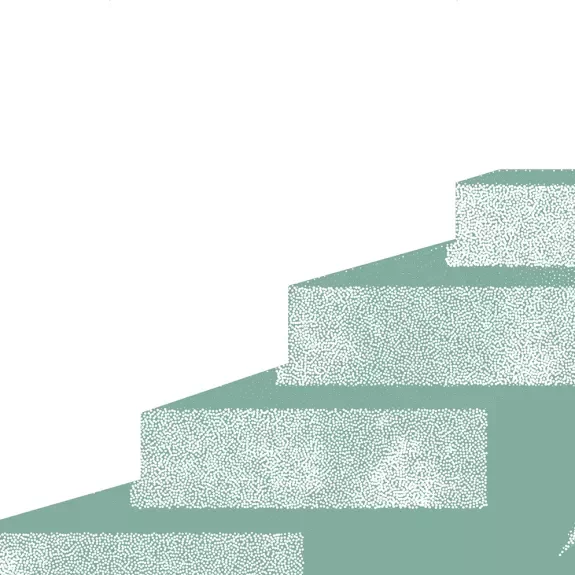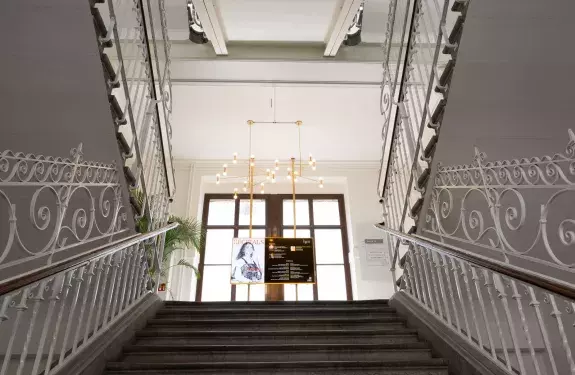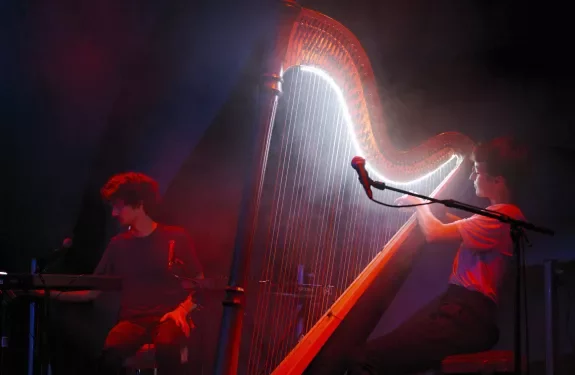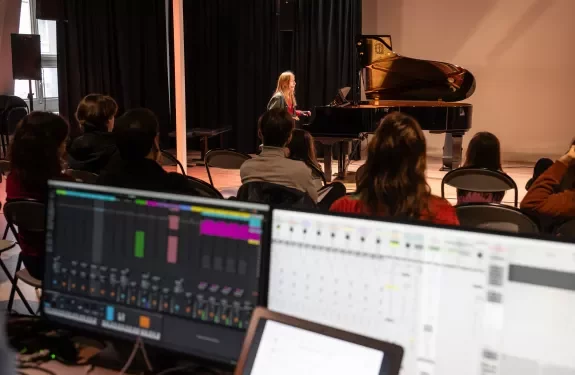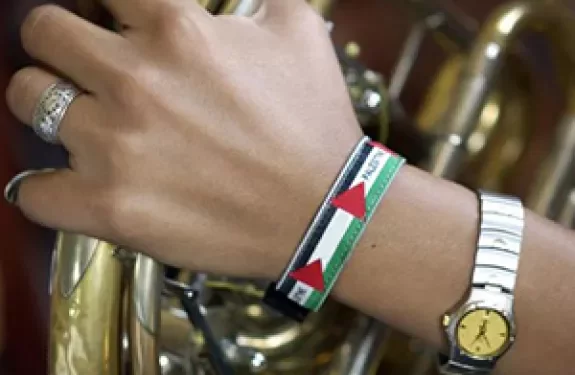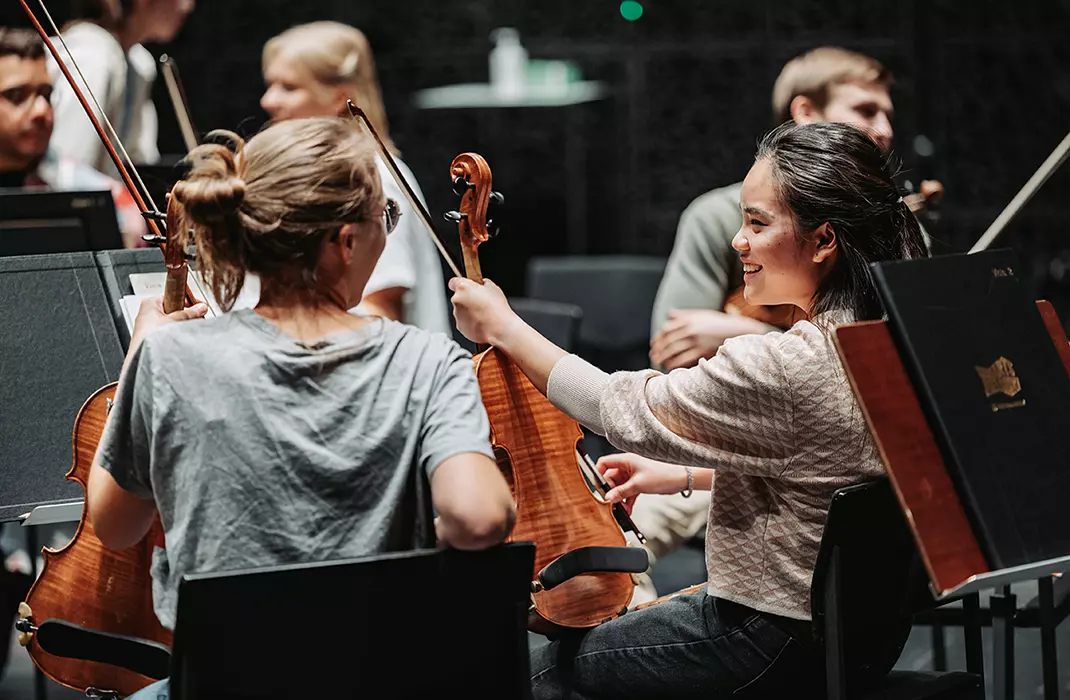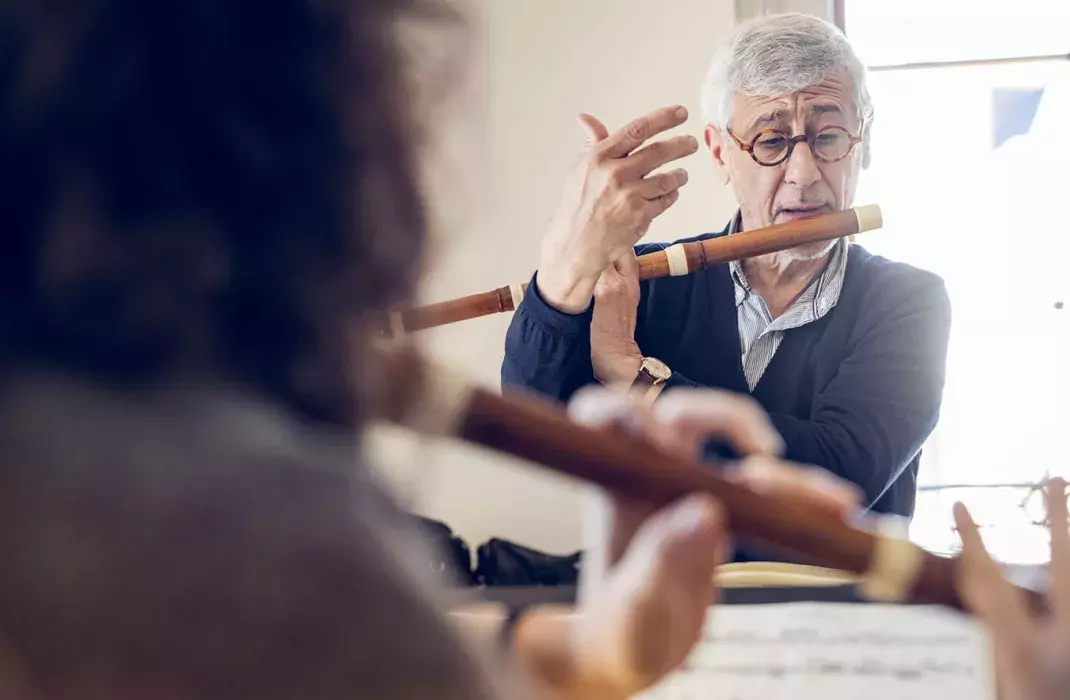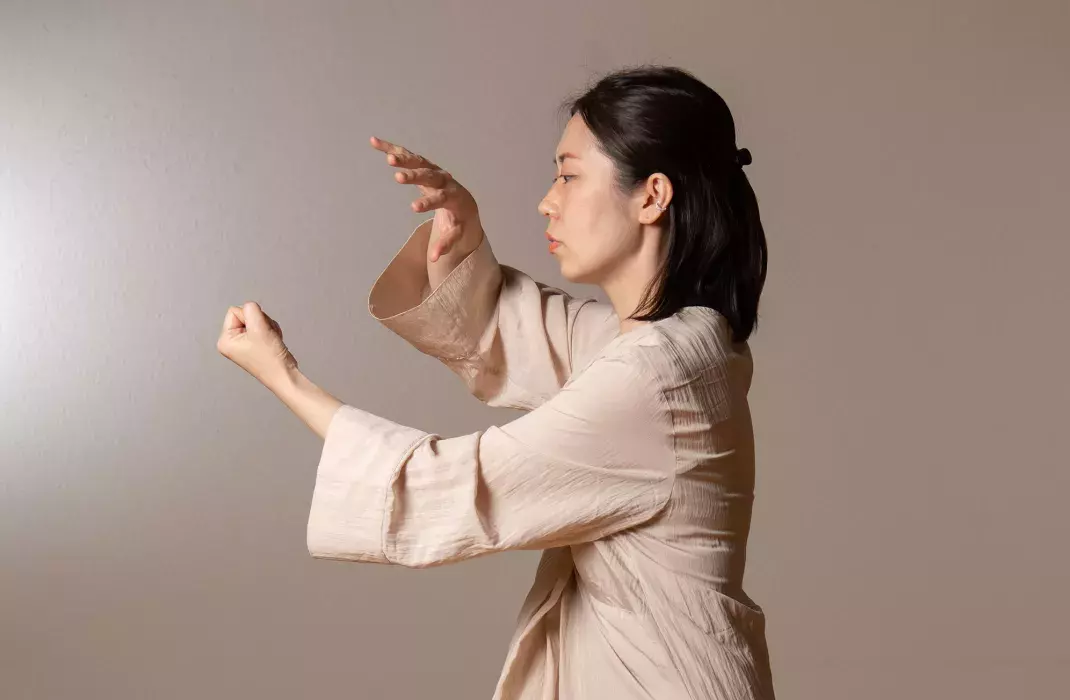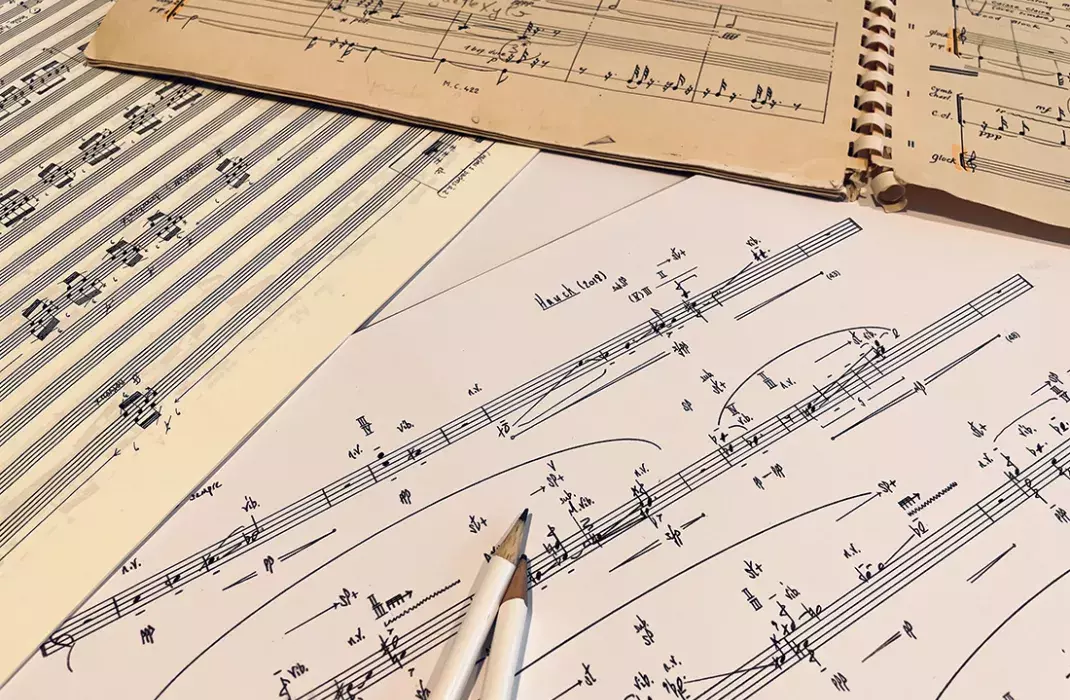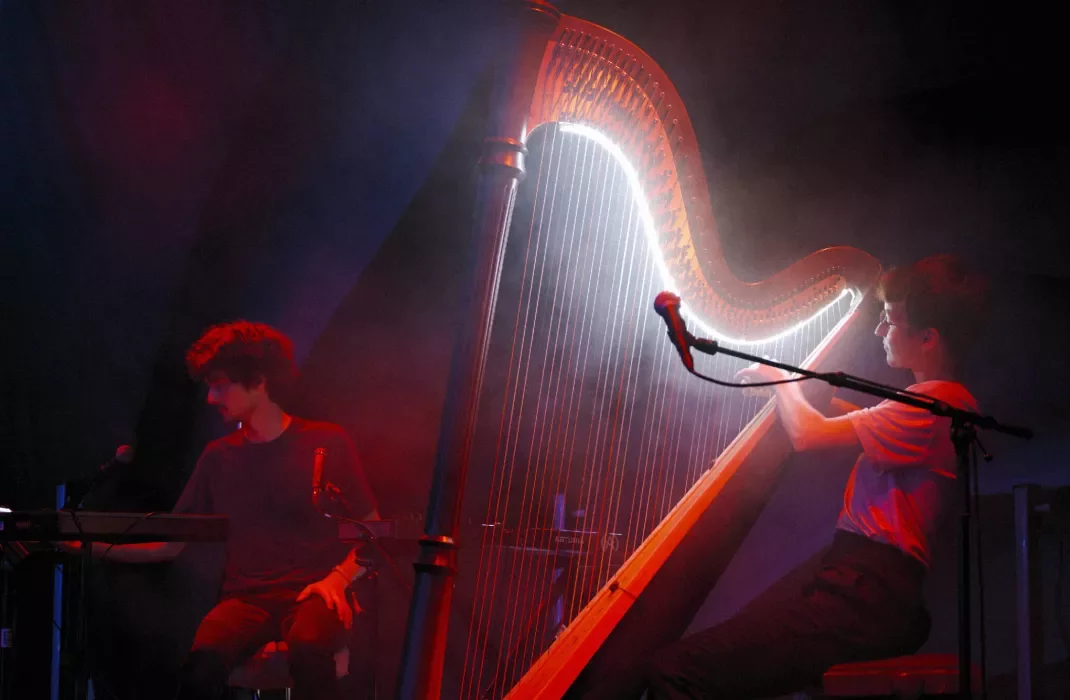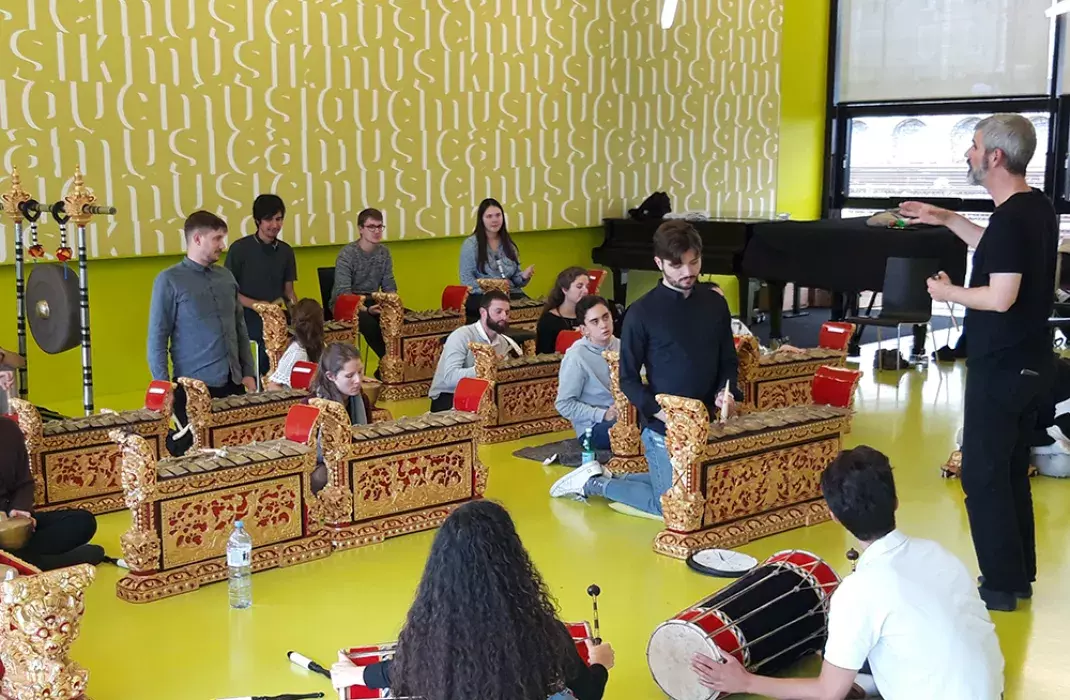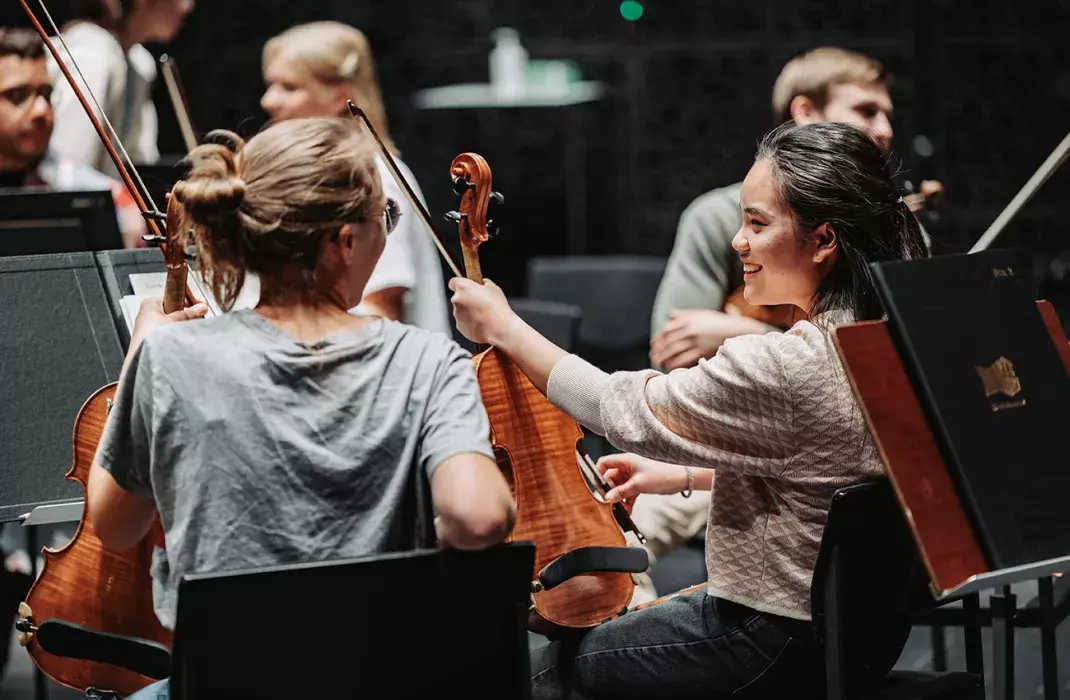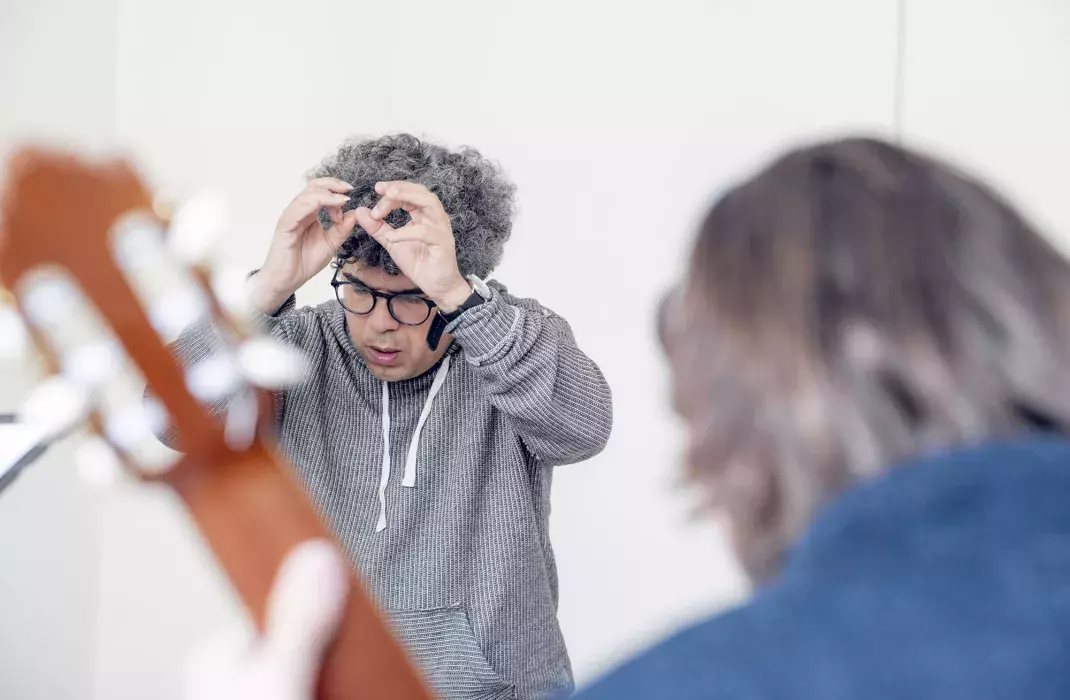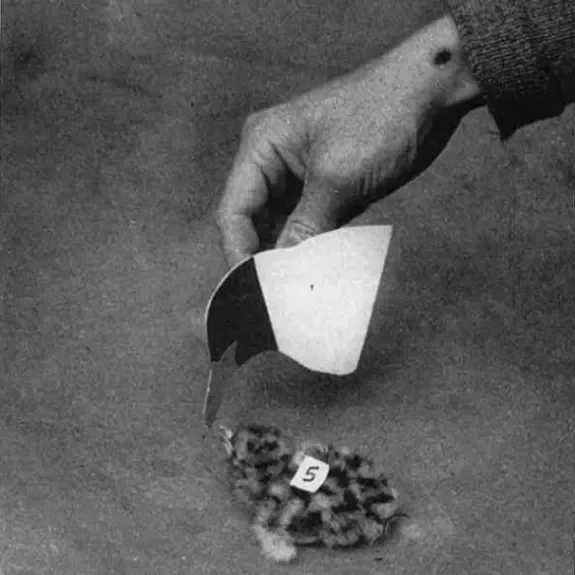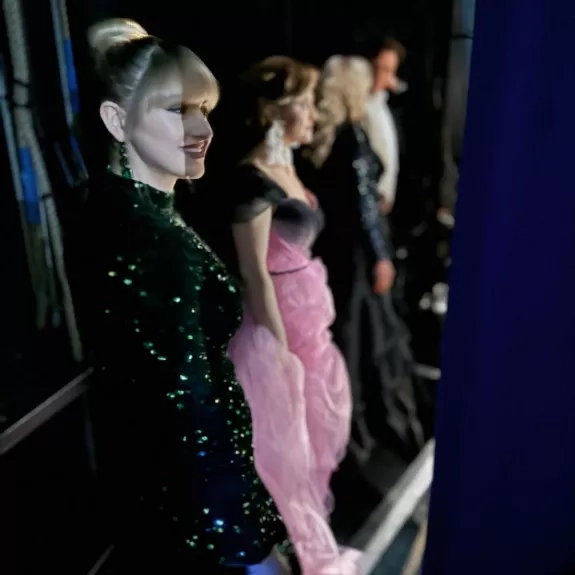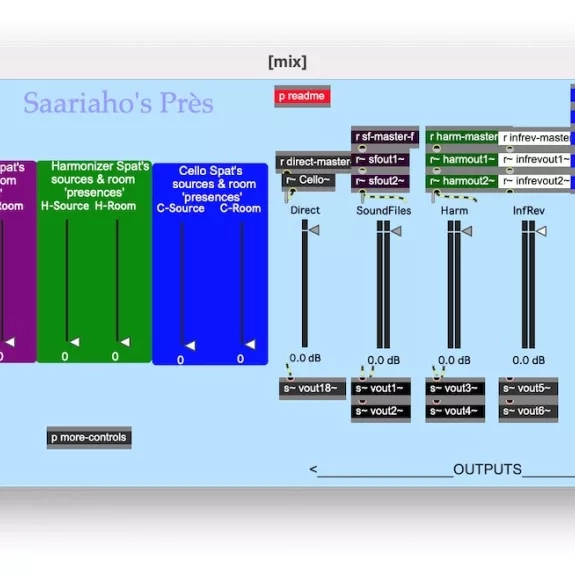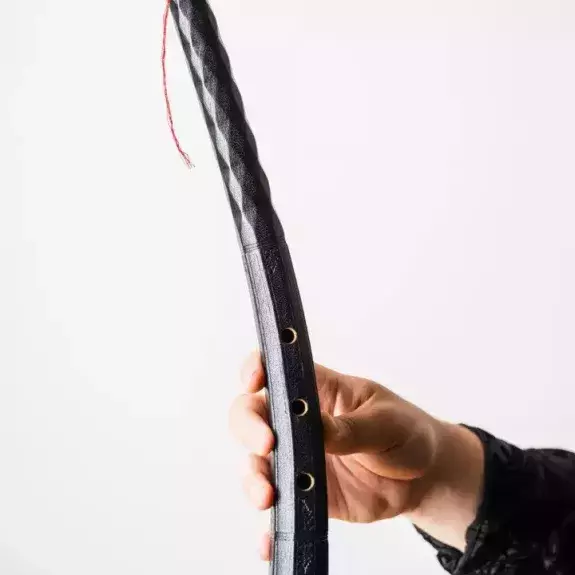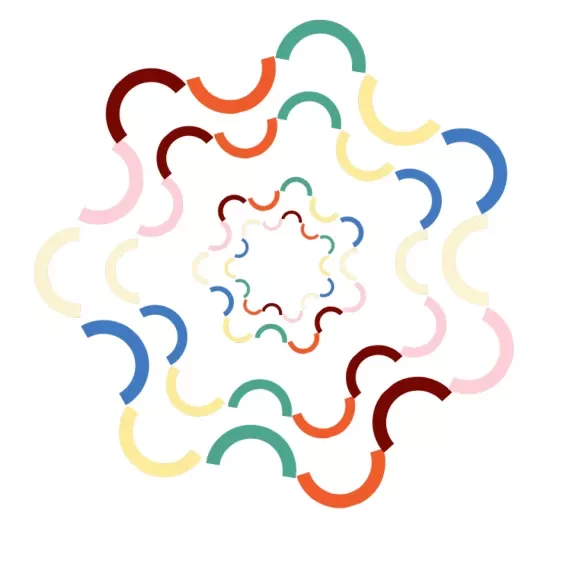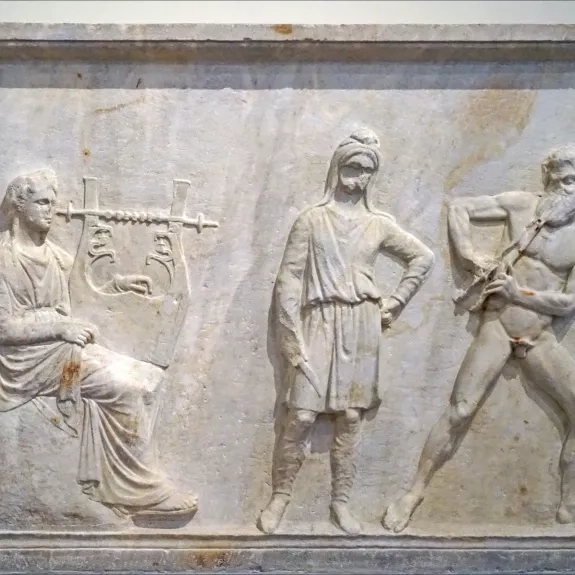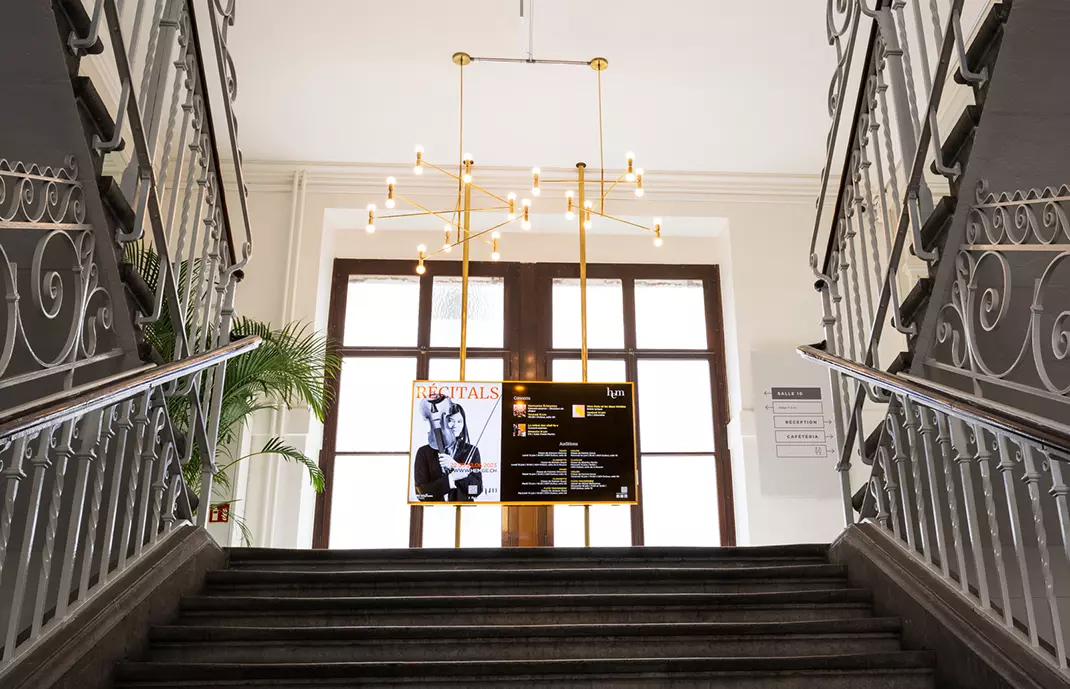- Studies
- Disciplines
- Research
- Events
- The school
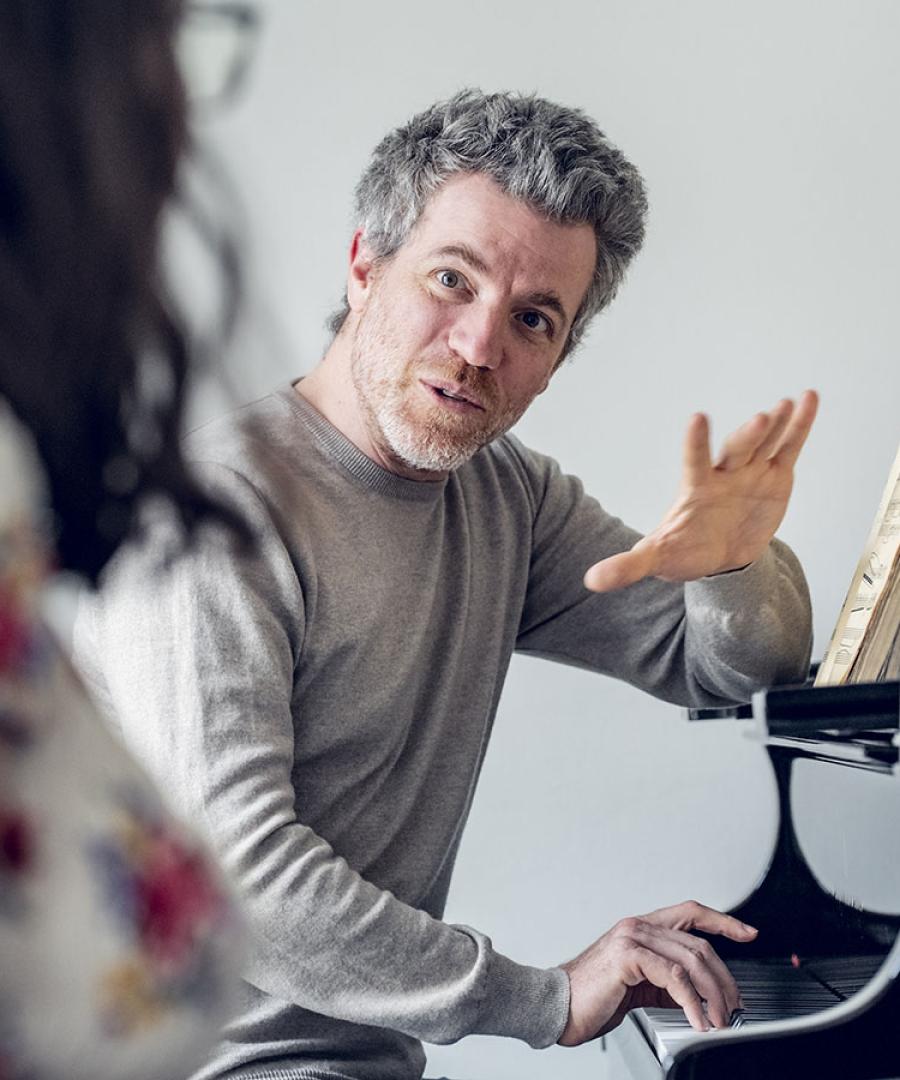
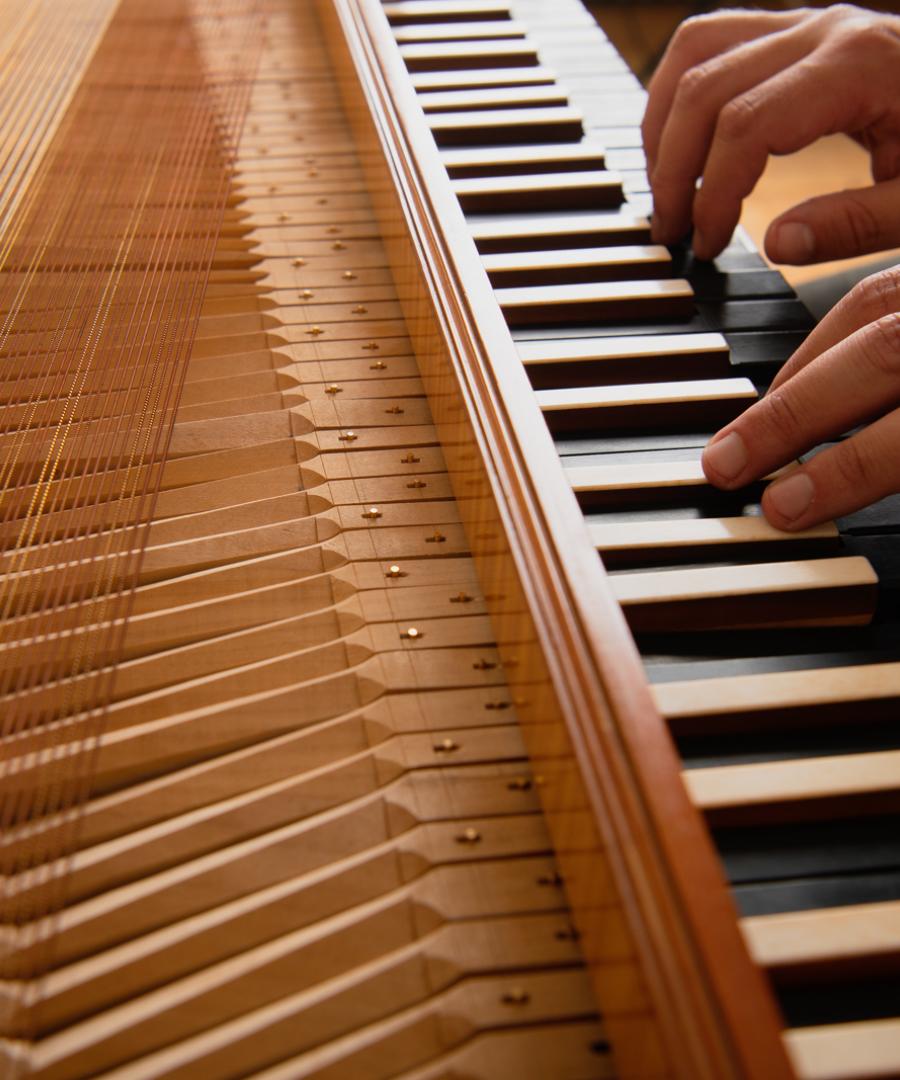
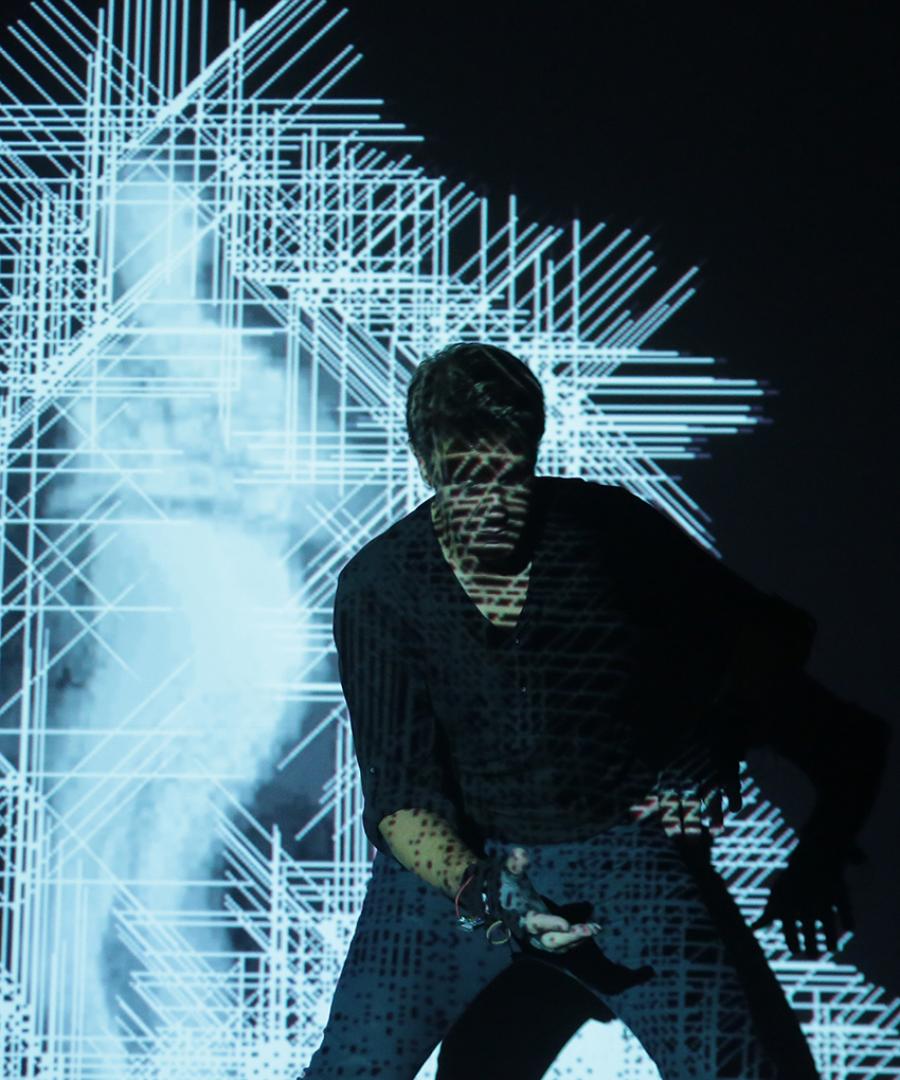
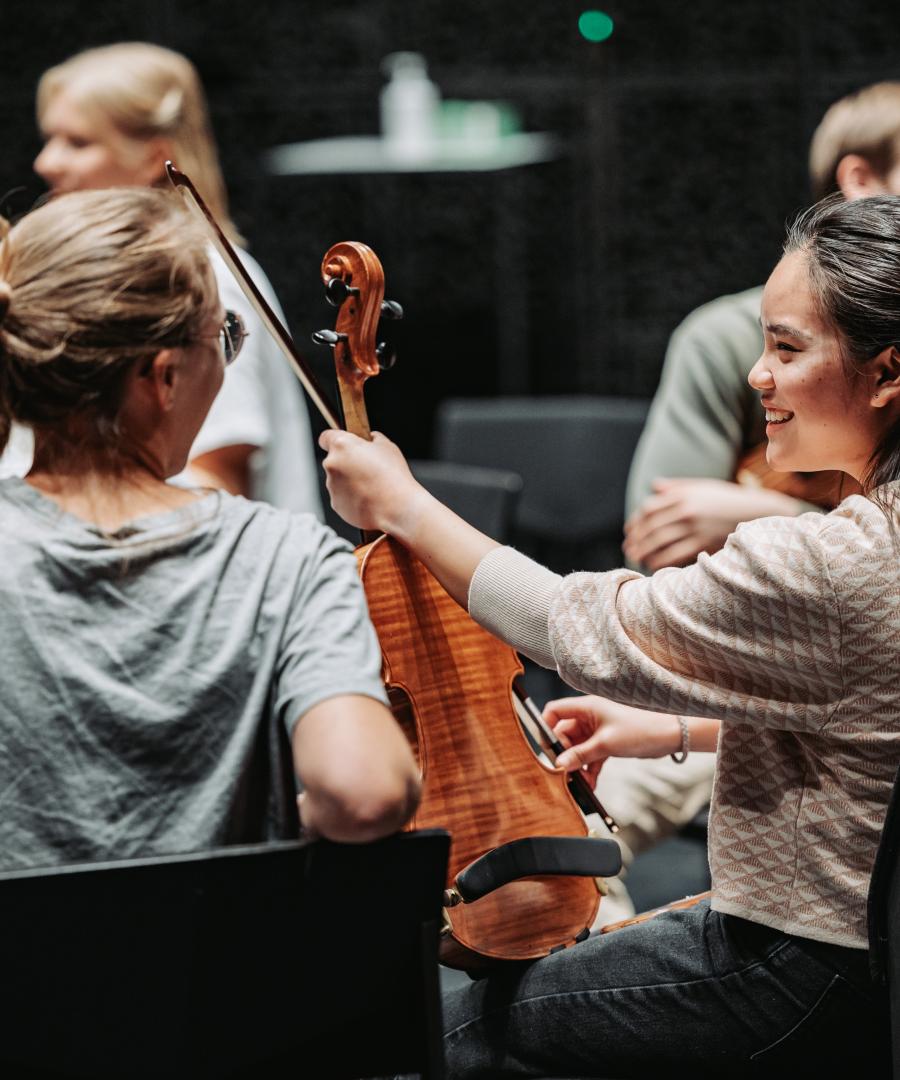
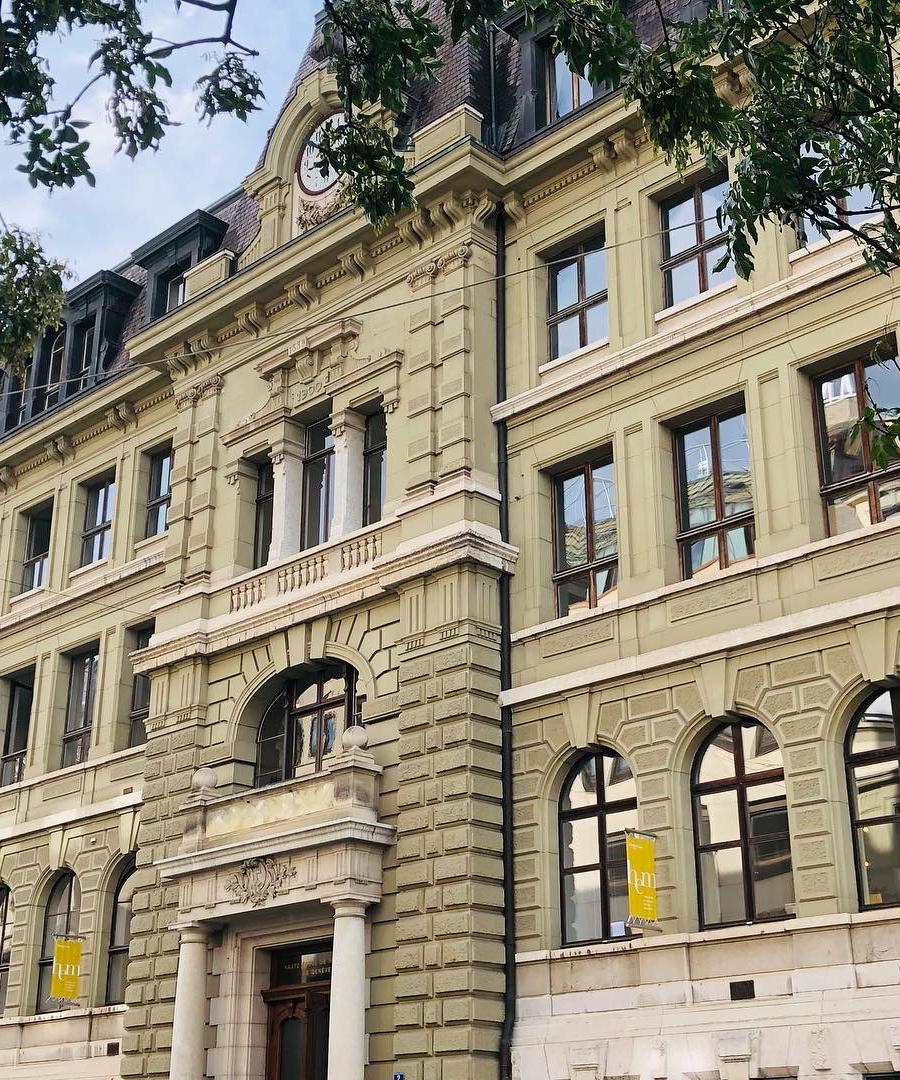
Events
News
Departments
Studies
- Bachelor of Arts2
- Master of Arts6
Research projects
Teachers
Stéphane Orlando
Professeur d'Ateliers d'improvisation (coordinateur) - Harmonie au clavier et écriture Jaques-Dalcroze - Improvisation instrumentale
Lauréat du prix SABAM for culture pour la musique contemporaine en 2020, le pianiste et compositeur Stéphane Orlando collabore régulièrement avec plusieurs musicien-ne-s, ensembles et orchestres. Depuis 2022, il est devenu compositeur en résidence à l'Orchestre Philharmonique Royal de Liège. Stéphane Orlando puise son inspiration dans la musique classique, traditionnelle et le jazz, mais aussi dans sa propre pratique de l'improvisation au piano. Il aime aussi bien composer pour un seul instrument ou en musique de chambre, avec ou sans électronique, que pour orchestre, mais il aime surtout inscrire sa musique dans un contexte narratif riche, avec une forte sensibilité pour les images, les mots et les mouvements. Stéphane Orlando enseigne l’improvisation instrumentale à la Haute école de musique de Genève (HEM). En savoir plus sur Stéphane Orlando
Sergey Ostrovsky
Professor of Violin
Sergey Ostrovsky was born in 1975 in Nizhny Novgorod into a family of musicians. His first violin teacher was David Lapidus. He then studied with Lazar Gantman and Yury Gluchovsky before emigrating to Israel with his family, where he continued his training with Yair Kless and Irina Svetlova. In 1996, he founded the Aviv Quartet, with which he first trained at the Hochschule für Musik in Cologne with members of the Alban Berg Quartet, and at the Rotterdam Conservatory with members of the Daniel Quartet. He also participated in master classes with renowned musicians such as Isaac Stern, Herman Krebbers, Dorothy Delay, and Ivry Gitlis. With the Aviv Quartet, he won the Melbourne International Chamber Music Competition (a grand prize and four special prizes), the Bordeaux String Quartet Competition, the Aviv National Competition in Tel Aviv, and the Rodolfo Lipizer Prize. Whether as a chamber musician or soloist, Sergey Ostrovsky has performed in major venues (Carnegie Hall in New York, the Library of Congress in Washington, Wigmore Hall in London, the Louvre Auditorium and Théâtre du Châtelet in Paris, and the Sydney Opera House) and in many countries (Israel, Germany, Austria, the United Kingdom, France, Ireland, China, Canada, and Brazil). His solo repertoire includes works by Bach, Beethoven, Mendelssohn, Lalo, Chausson, and Sibelius, among others. He has also played with numerous orchestras conducted by maestros such as Zubin Mehta, Yoel Levi, Philippe Entremont, Maxim Vengerov, and Uriel Segal. Sergey Ostrovsky has recorded for Naxos and EMI Classics, notably with Maxim Vengerov and the UBS Verbier Chamber Orchestra. He is the first violinist of the Aviv Quartet, performing major classical and romantic quartets, and the concertmaster of the Orchestre de la Suisse Romande. He plays a Giovanni Grancinno from 1716 and teaches violin at the Haute école de musique de Genève, Neuchâtel site. Learn more about Sergey Ostrovsky
Giulia Genini
Professor of Baroque Bassoon
Born in Lugano, Switzerland, Giulia Genini began her recorder studies at the Conservatorio della Svizzera Italiana with Giorgio Merati. Her interest in early music and period instruments led her to Basel, where she continued her studies at the Schola Cantorum Basiliensis with Conrad Steinmann. At the same time, she began studying the dulcian and baroque bassoon with Josep Borras and Donna Agrell. In 2008, she received her recorder diploma (performance and pedagogy) with distinction, and in 2010, her Master's degree in historical performance practice in baroque bassoon and dulcian, also with distinction. She performs as a recorder player and bassoonist with numerous international ensembles and works with renowned conductors. As a soloist, she has performed with the Venice Baroque Orchestra under the direction of Andrea Marcon at the Menuhin Festival Gstaad, Schleswig Holstein Musikfestival, Settimane Musicali di Ascona, Geneva Victoria Hall, Carinthischer Sommer Festival Ossiach, and New York's Carnegie Hall. Since 2015, she has often been invited as a guest coach at the Conservatorio della Svizzera Italiana in Lugano, coordinating wind sections for orchestral projects on historical performance practice. She also works there as a co-director of studies in the field of performance. She is a founding member and artistic director of the ensemble Concerto Scirocco as well as the artistic director of the Festival CaronAntica. Learn more about Giulia Genini.
Laurent Gay
Professor of Orchestral Conducting - Elements of Orchestral Conducting (for Choral Conductors)
Holder of the orchestral conducting class at the Haute école de musique de Genève, Laurent Gay has conducted a vast number of concerts in Europe, Asia, and South America, covering a wide repertoire. He has regularly conducted, among others, the Orchestre de la Suisse Romande, the Lausanne Chamber Orchestra, Ensemble Contrechamps, and the Orchestre de l'Opéra National de Lyon. He has also conducted the Geneva Chamber Orchestra, the Orchestra della Svizzera Italiana, the Lausanne Sinfonietta, the Orchestre de Bretagne, the Orchestre des Pays de Savoie, the Regional Orchestra of Lower Normandy, the Aalborg Symphony Orchestra (Denmark), the State Symphony Orchestra of Bahia (Brazil), the Deajon Philharmonic Orchestra (South Korea), the Ensemble Orchestral de Genève (artistic director from 1986 to 1996), and the Festival Amadeus Orchestra (artistic director from 1999 to 2004). Laurent Gay has also conducted numerous opera productions, notably at the Opéra de Lausanne, the Opéra National de Lyon, and the Royal Opera of Versailles. Many of the productions he has conducted have been broadcast on several Swiss and French national radio and television channels. He is also featured in several discographic productions, leading the Festival Amadeus Orchestra, Ensemble Contrechamps, and the Lausanne Chamber Orchestra. Deeply committed to contemporary music, he has led the premieres of around thirty works, including Xavier Dayer's opera "Le Marin." As an invited jury member of several international competitions, Laurent Gay has always been interested in teaching and has consistently been involved in this field. He has given masterclasses and conducted conducting workshops in several European countries, as well as in Brazil as part of the NEOJIBA program and in China at the Shanghai Conservatory. A recognized pedagogue, he now dedicates a significant portion of his activities to teaching orchestral conducting.
Michel Bellavance
Professor of Flute - Woodwind Chamber Music
Miyazawa artist, the Canadian-Swiss flutist Michel Bellavance has been a soloist in concertos by Nielsen, Ibert, Reinecke, Bernstein, Kabalevski, Liebermann, Mozart, Bach, and Vivaldi with orchestras in Europe and Latin America, including the Gulbenkian Orchestra in Lisbon, the Geneva Chamber Orchestra, the National Symphony Orchestra of Peru, the Mendoza Philharmonic Orchestra, the Bahia State Symphony Orchestra, and the Maracaibo Symphony Orchestra. Michel Bellavance has performed at festivals in Switzerland, the United States, Peru, Brazil, Venezuela, Costa Rica, Chile, Colombia, and Ecuador. He has been featured on radio broadcasts by CBC, Radio Suisse Romande, and National Public Radio, and has given recitals in cities such as Prague, Barcelona, Geneva, Madrid, Basel, London, Zurich, Paris, Montreal, Ottawa, Washington DC, New York (Carnegie Hall), Hong Kong, Tokyo, Beijing, Shanghai, Lima, São Paulo, Brasilia, Buenos Aires, and Bogotá. His recordings for Meridian Records, Atma Classique, Brioso Recordings, and SNE have been praised by international critics and reflect his keen interest in new repertoire and lesser-known works. Alongside his performing career, Michel Bellavance is a flute professor at the HEM – Geneva, and he regularly gives masterclasses in Europe, Asia, and Latin America, notably at the Royal College of Music and the Guildhall School of Music and Drama in London, the Beijing and Shanghai Conservatories, the Hong Kong Academy for Performing Arts, as well as at the International Flute Festivals of San Jose and Lima. Learn more about Michel Bellavance
Sylviane Deferne
Professor of piano
Pianist Sylviane Deferne distinguished herself early on in the music world, where the press noted ‘her expressive nobility, intuition, temperament, sense of plasticity and impressive instrumental technique’. This brilliant performer completed all her musical studies at the Conservatoire de Musique in Geneva, her hometown, where she was unanimously awarded a First Prize for Virtuosity. Winner of several international competitions and named ‘Soloist of the Year’ by the French-speaking radio community, Sylviane Deferne's career quickly took off. She has performed in Europe, America and Asia and has played as a soloist with the Orchestre de la Suisse Romande, the Orchestre Symphonique de Montréal, the National Symphony Orchestra in Washington and the Philharmonia Orchestra in London under the baton of Charles Dutoit. Pianist Sylviane Deferne has made numerous recordings for the DECCA, Musica Viva, Riche Lieu, DORON music and Aparté labels. She is invited to sit on the jury of international competitions and at music colleges in Switzerland and France, and shares her passion in masterclasses and with her professional students at the Geneva University of Music. Since 2019, Sylviane Deferne has been artistic director of the Concerts d'Artémont. She brings her artistic vision to an ever-growing audience, developing season after season the highlights and intergenerational sharing. Her latest albums, recorded at the Salle de Musique in La Chaux-de-Fonds by the Aparté label, are dedicated to Franz Schubert (Der Wanderer, solo piano, 2022), Felix Mendelssohn (complete works for violin and piano with Denitsa Kazakova and the Orchestre des Jeunes de la Suisse Romande, 2024) and Robert Schumann (Zwielicht, solo piano, autumn 2025). Learn more about Sylviane Deferne.
Alberto Bocini
Professor of Double Bass
Alberto Bocini initially studied guitar before dedicating himself to the double bass. He holds a diploma from the Cherubini Conservatory in Florence, obtained in the class of Alfredo Brandi, and further honed his skills under the guidance of Franco Petrachi. He has won numerous competitions, including a first prize at the Valentino Bucchi Competition, a first prize at the Torneo Internazionale della Musica, and a second prize at the Nicanor Zabaleta String Competition. As a soloist, he has performed with many ensembles, including the orchestra of the Teatro Massimo in Palermo, I Solisti Veneti, and the Rome and Lazio Orchestra. In chamber music, he has played with Yuri Bashmet, Vadim Repin, Patrick Gallois, Natalia Gutman, and Eric Ruske. The Newport Music Festival honored him by inviting him eleven times, up until 2004. Alberto Bocini is a member of the Bass Gang, a double bass quartet with an extremely heterogeneous repertoire, which they present with virtuosity and humor. This ensemble has enjoyed great success and has been acclaimed during tours in Japan and Korea. The group recorded a DVD for the independent label NBB Records, a label founded by Alberto Bocini, for which he has recorded extensively. An eclectic and enthusiastic musician, Alberto Bocini does not hesitate to push the boundaries of his repertoire. He recorded for Denon Braevissimo a concerto for double bass and strings by Ennio Morricone and dedicated an album to the music of the English rock band Genesis with a trio named After Genesis. Currently the principal double bassist of the Maggio Musicale Fiorentino under the direction of Zubin Mehta, Alberto Bocini teaches double bass at the Haute école de musique de Genève. Learn more about Alberto Bocini
Florence Jaccottet
Head of the Music and Movement Department - Rhythmician, teacher, movement artist
Born in Lausanne in 1989, Florence Jaccottet is currently Head of the Music and Movement Department at the Geneva University of Music (HEM), where she has been teaching rhythm, movement technique and composition, and creative experimentation workshops since 2019. A specialist in the Jaques-Dalcroze method, she has over 10 years' experience in teaching rhythm, acquired in particular at the Jaques-Dalcroze Institute, where she taught a variety of audiences for several years. Her teaching has been recognised with several awards, including a prize for excellence in music theory teaching and the Alethéia Foundation Prize for the creation of ‘Entrée en matières’ (2017), in collaboration with percussionist Michael Chapon. Florence Jaccottet was trained from childhood in Jaques-Dalcroze eurhythmics at the Lausanne Conservatory. She also studied piano there in Helena Maffli's class, obtaining a Prize for Excellence in 2008. At the HEM Geneva, she pursued a Bachelor of Arts in Music and Movement (Marguerite Croptier Lange Teaching Prize, 2011), a Master of Arts in Jaques-Dalcroze Pedagogy (Jaques-Dalcroze Institute Prize, 2013), and then a Higher Diploma, obtained in 2019. Alongside her teaching, Florence Jaccottet is developing artistic research focused on the musicality of improvised movement. She has a particular interest in contemporary music repertoire, collaborations with composers, and performative and sound experiments. Placed at the heart of her artistic research, the expression of rhythm and musicality of movement through improvisation makes her dance a unique contemporary language. Also active internationally, Florence Jaccottet is regularly invited to teach, notably in Seoul, Montreal and Beijing.
Fabrizio Chiovetta
Professor of piano
Born in Geneva, with Swiss and Italian nationality, Fabrizio Chiovetta studied with Dominique Weber, John Perry, and Paul Badura-Skoda, becoming a favored disciple of the latter. He has given numerous concerts in Europe, North America, Asia, and the Middle East (Sommets Musicaux and Menuhin Festival in Gstaad, Lisztomanias, Victoria Hall, Berlioz Festival, Schloss Elmau, Tonhalle, Princeton Piano Festival, NCPA in Mumbai, National Center in Beijing, Oriental Art Center in Shanghai). He has performed under the direction of Gábor Takács-Nagy, Arie van Beek, Mikael Toms, and Diego Matheuz. He is also a highly sought-after chamber musician, performing with partners such as the Belcea Quartet, Patrick Messina, Henri Demarquette, Benjamin Appl, Gautier Capuçon, Lise Berthaud, Pierre Fouchenneret, Camille Thomas, Alexandra Conunova, Sarah Nemtanu, Silvia Careddu, Sophie Karthäuser, Marc Coppey, Samuel Hasselhorn, and Werner Güra. He premiered Tristan Murail's solo piano piece "Le rossignol en amour" and made the first recording of chamber works by Arvo Pärt, Jan Rääts, and André Previn. Also an improviser, he collaborates with musicians from various backgrounds (Vincent Ségal, Grégoire Maret, Marthe Keller). His recordings for Palexa, Claves Records, and Aparté of works by Schumann, Schubert, Haydn, Mozart, Bach, and Beethoven have been praised by critics (Diapason, CHOC de CLASSICA, FonoForum, American Music Guide). His latest Schumann album was awarded an "Editor's Choice" by Gramophone and a 10/10 by Classics Today. Fabrizio Chiovetta has been teaching at the Haute école de musique de Genève on the sites of Geneva and Neuchâtel since 2009. "His playing is distinguished by its elegance, sense of balance, and refinement." - France Musique Learn more about Fabrizio Chiovetta.
Antoine Schneider
Professor of Practical Writing - Contrepoint
After studying violin and musicology in Geneva, Antoine Schneider furthered his musical theory education in Zurich with Burkhard Kinzler and Andreas Nick. He also trained in musical direction, piano, and baroque violin. He is currently a professor of solfège and counterpoint at the Haute école de musique de Genève and the Haute école des arts de Berne, as well as a professor of musical training at the ESM Bourgogne-Franche-Comté (Early Music Department). In his teaching, he specializes in the practices of musical improvisation during the Renaissance period. He is regularly invited to give masterclasses across Europe and collaborates with Jean-Yves Haymoz, Barnabé Janin (CNSMD Lyon), and the Helicona project. He is the co-responsible for the website Super librum cantare (www.superlibrum.com).
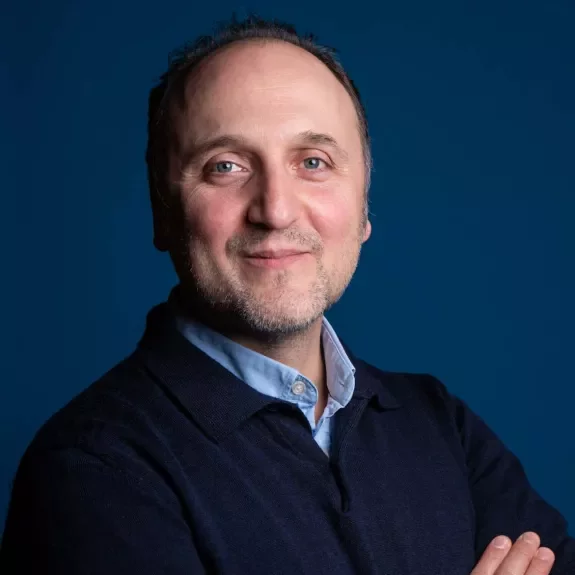
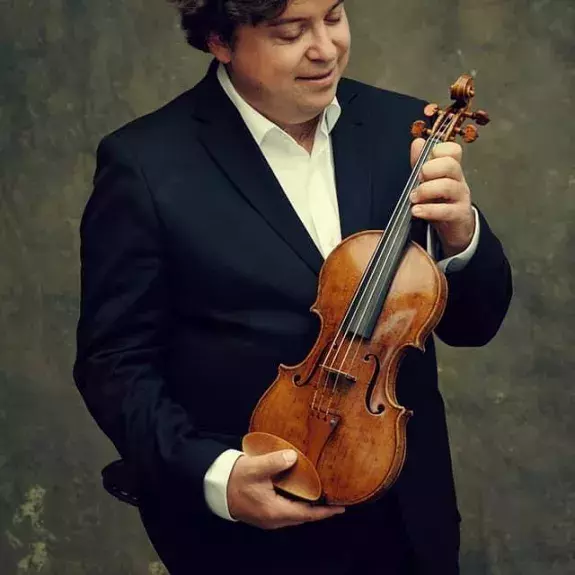
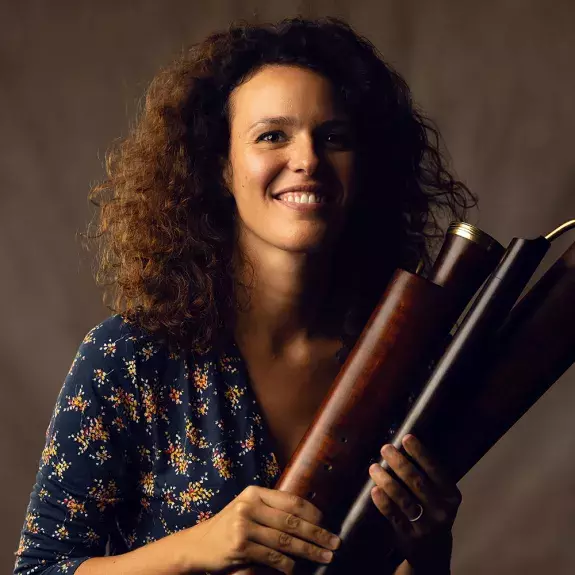

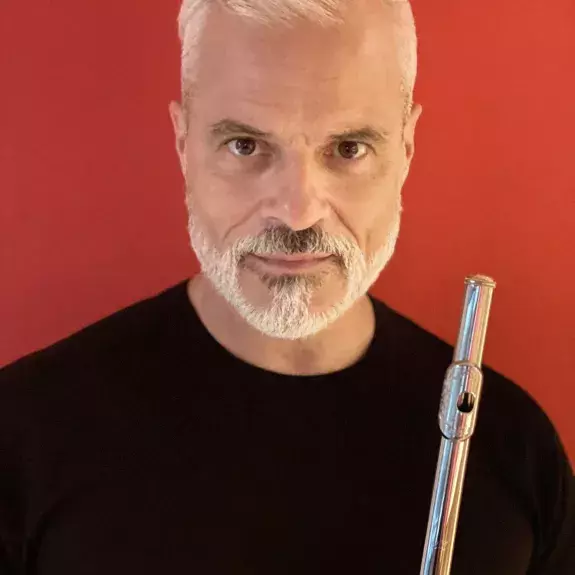

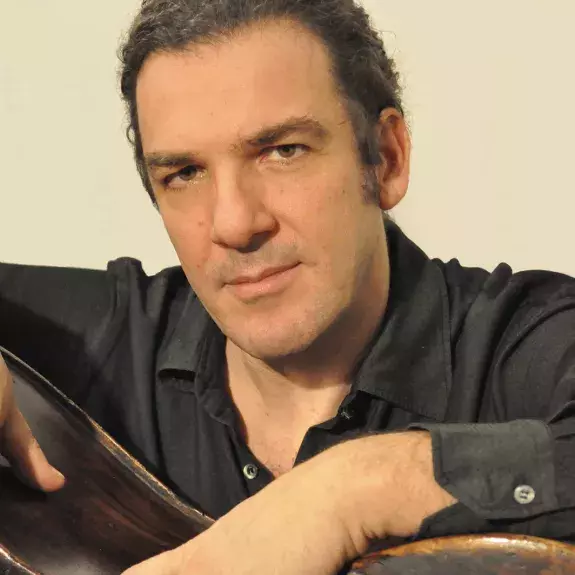
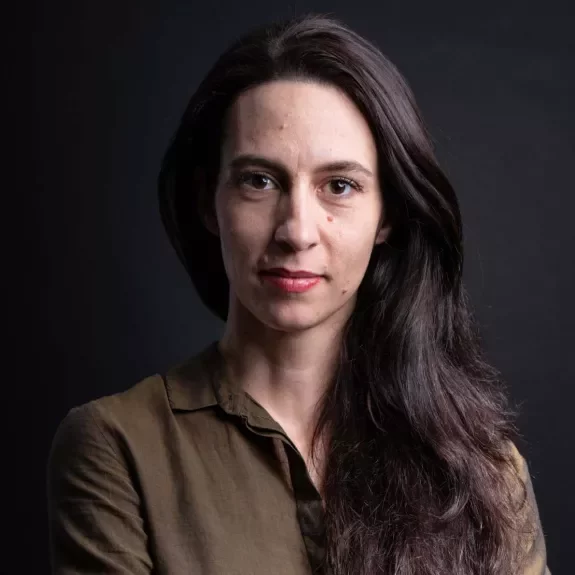
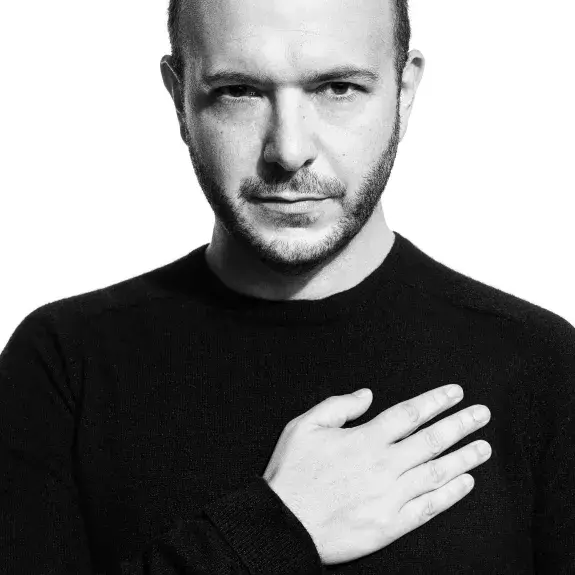
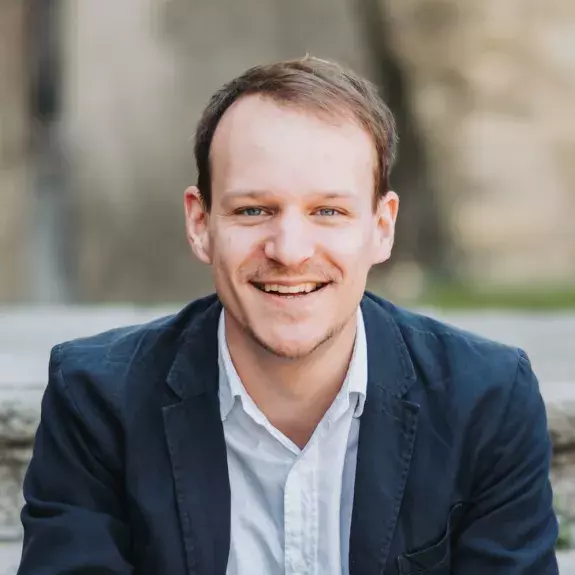
Student testimonials
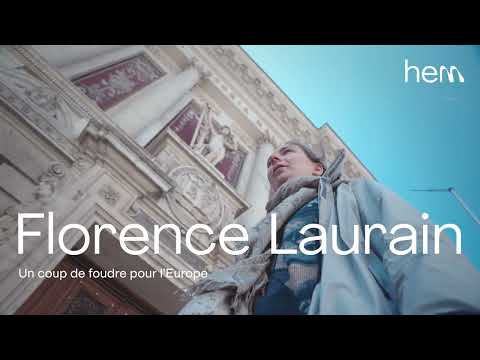
Ce que j'aime à la HEM, c'est la possibilité de jouer aux côtés des musiciens professionnels de l'Orchestre de la Suisse Romande (OSR)
Florence Laurain Master of Arts en interprétation musicale orientation concert
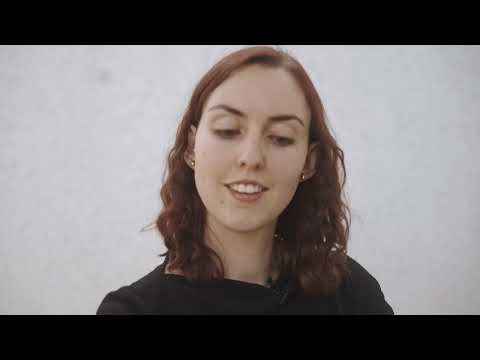
Quand j'ai découvert le département Musique et mouvement de la HEM, ça a été un vrai coup de foudre !
Laurence Monbaron Etudiante en 3e année du Bachelor of Arts en Musique et mouvement
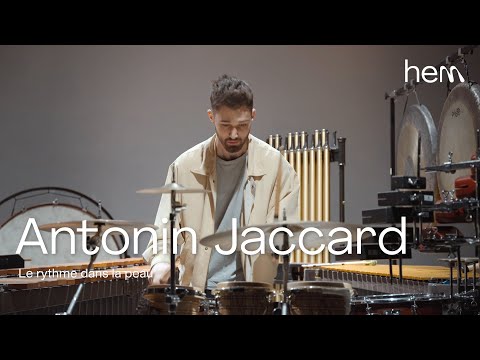
La réputation internationale de la classe de percussion de la HEM permet d’attirer beaucoup d’étudiant-e-s de grand talent !
Antonin Jaccard Etudiant en 3e année du Bachelor of Arts en Musique
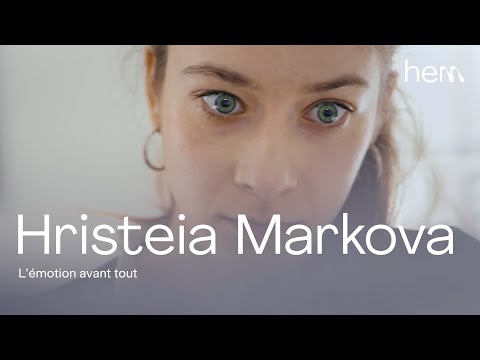
Le double cursus Master proposé par la HEM me permet de concrétiser mes deux ambitions professionnelles : jouer et enseigner
Hristeia Markova Etudiante en Master en interprétation musicale spécialisée et en pédagogie
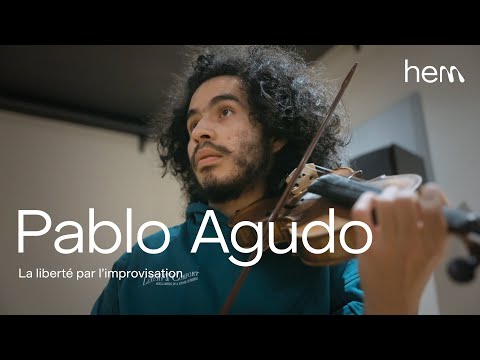
La HEM est réputée jusqu'en Amérique latine pour l'expertise de son département de musique ancienne, tant au niveau instrumental que théorique.
Pablo Agudo Etudiant en 2e année du Bachelor of Arts en Musique / instruments historiques (Violon baroque)
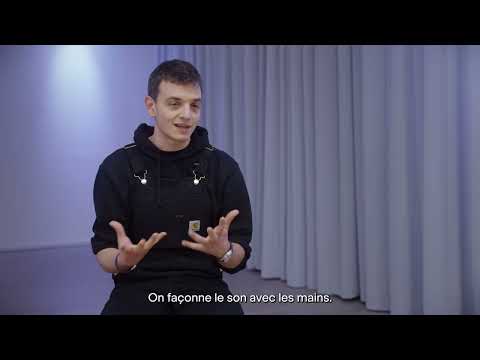
La HEM propose un cursus en adéquation avec les attentes du monde professionnel et m'y prépare en mettant en discussion mes aspirations et la réalité du métier de musicien
Mattia Bornati Etudiant en 2e année de Master de direction d'orchestre
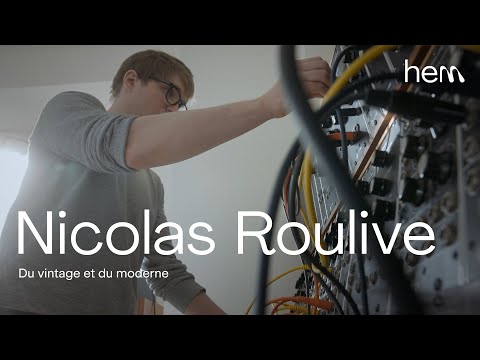
J’ai choisi la HEM pour la renommée de son équipe pédagogique et l’importance des moyens qu’elle met à la disposition de ses étudiant-e-s dans le domaine de la musique électro-acoustique
Nicolas Roulive Etudiant en Master de composition
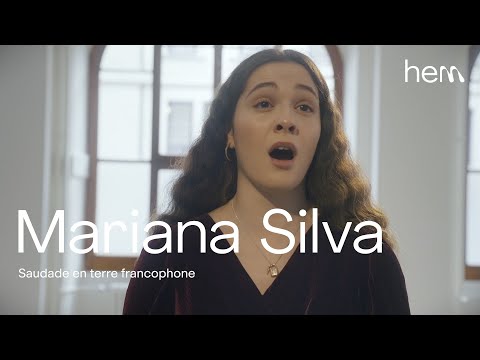
Le département vocal de HEM propose à ses étudiant-e-s de nombreuses Masterclasses avec des personnalités artistiques incroyables
Mariana Silva Etudiante en Master en interprétation musicale, orientation concert (chant)
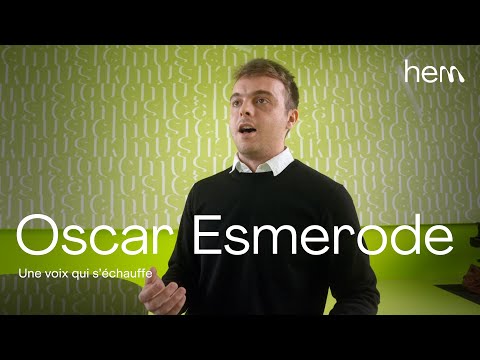
Ce que j’aime à la HEM sur le site de Neuchâtel, c’est la belle cohésion entre les étudiant-e-s au sein de la classe de chant
Oscar Esmerode Etudiant en 3e année de Bachelor en chant sur le site de Neuchâtel
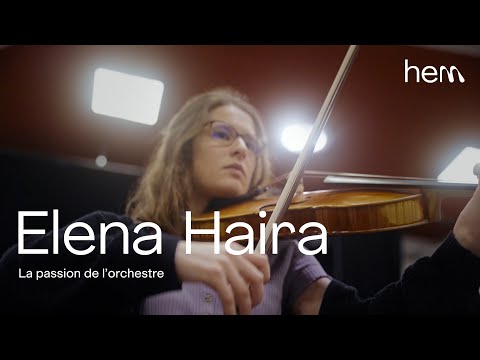
Ce que j’aime à la HEM, c’est la grande diversité des étudiant-e-s et la variété des projets proposés pendant le cursus.
Elena Haira Étudiante en 3e année de Bachelor of Arts instrumentistes (alto)
The HEM in numbers
0
students in 2022
0
teachers in 2022
+
0
events in 2022
0
sectors
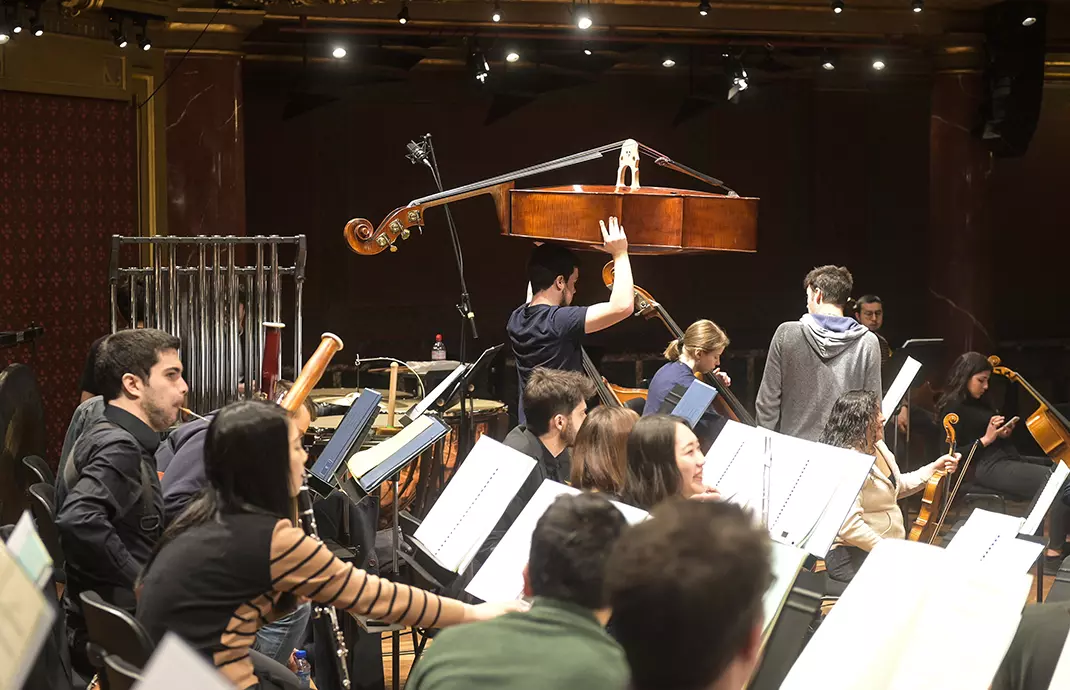
Student life
- Living in Geneva
- Living in Neuchatel
- Budget & bursary
- Housing
Living in Geneva
A multicultural city par excellence, Geneva is known throughout the world for its quality of life and spirit of openness. Situated between the Alps and the Jura mountains, beside Lake Geneva, Geneva revels in its wonderful geographical location at the heart of Europe.
Living in Neuchatel
Neuchatel is a dynamic and attractive city on the shores of the lake of the same name.
Videos

La HEM se présente
Lu 28 août 2023
Le département des instruments à clavier de la HEM
Ma 29 août 2023

